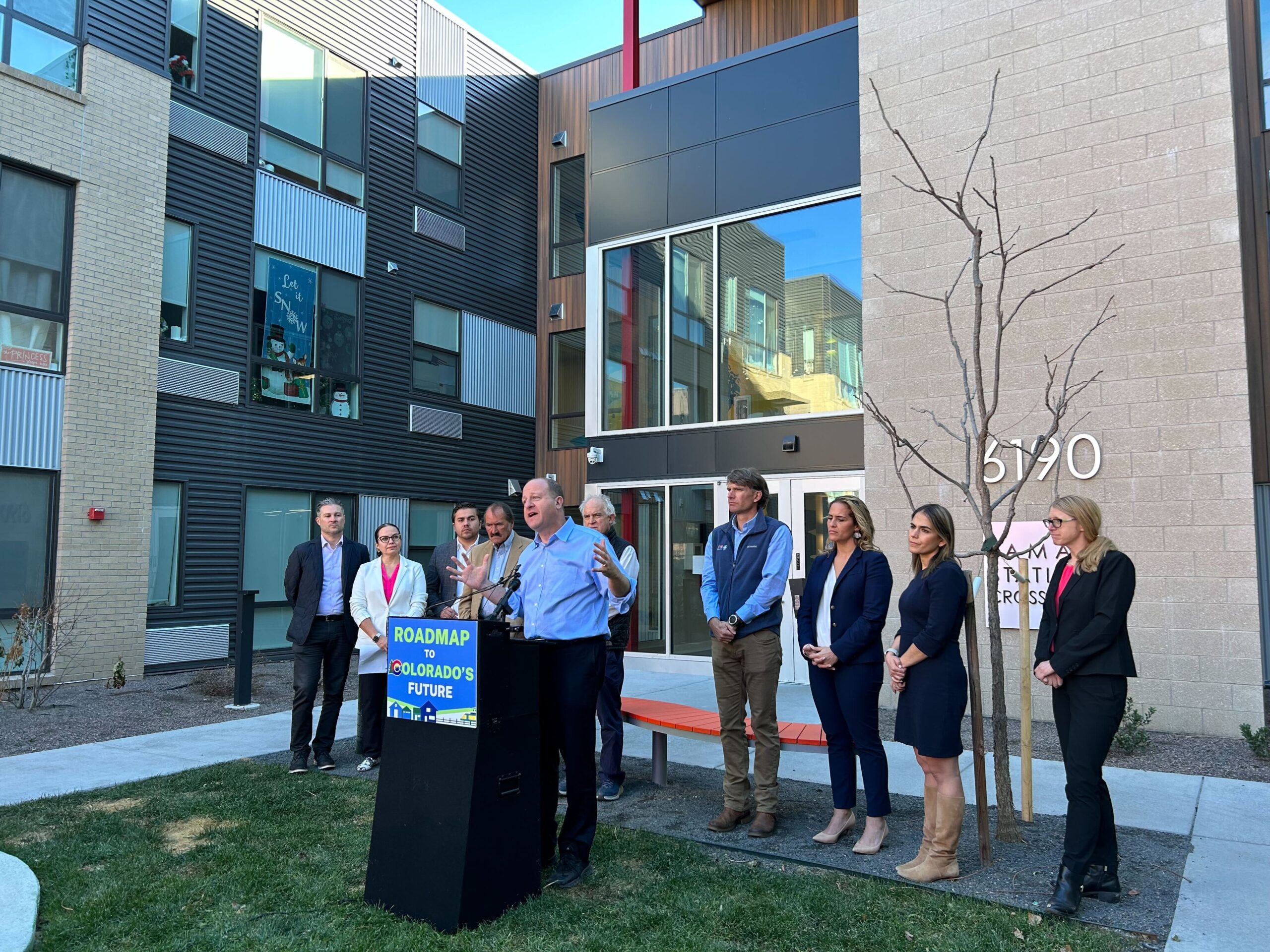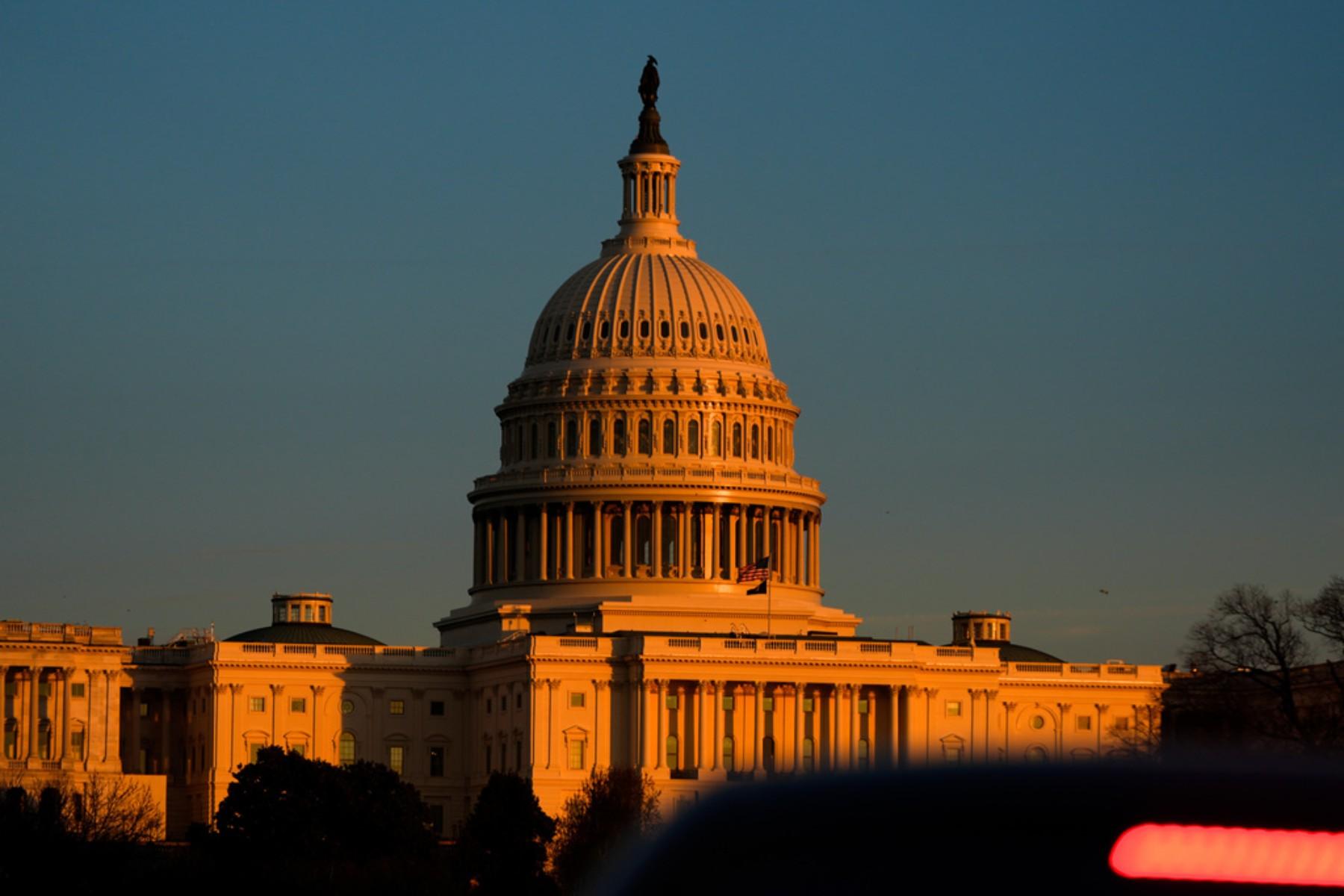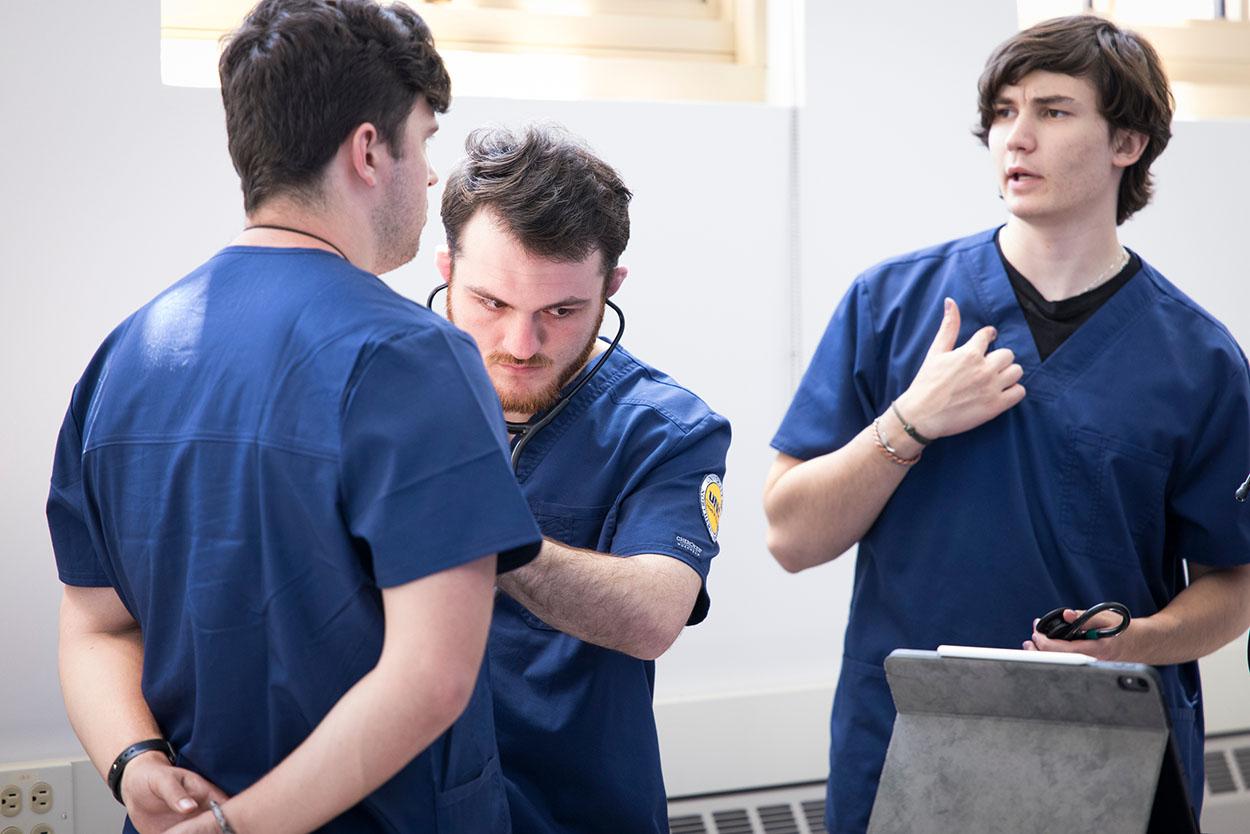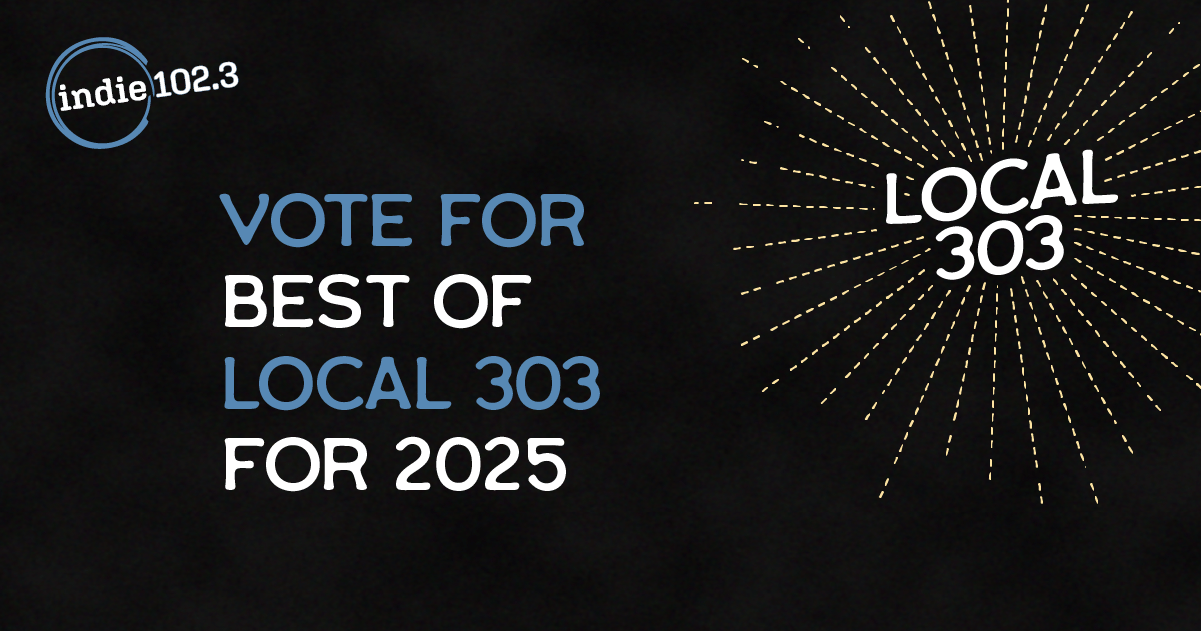
Colorado needs a lot more public transportation service and the state government is willing to pay for it, Gov. Jared Polis says.
But he doesn’t trust the state’s largest public transportation agency — Denver’s Regional Transportation District — to deliver it without significant reforms.
“RTD does not have the confidence of the people of the district,” Polis said in an interview with CPR News.
The governor made those comments a day before he unveiled his administration’s “Vision 2026” roadmap for Colorado, which calls for a major boost in public transit service across the state, at an RTD light rail station in Lakewood.
The new plan, detailed in a 34-page document, says Colorado urgently needs more and denser housing development to drive down prices — a research-supported belief that also underpinned his unsuccessful legislative push to overhaul land use policies last session — as well as more public transit service. Both are key to a more affordable, more climate-friendly state, the roadmap says.
“All the partners that touch transit and housing need to work together to create this vision of a more livable and affordable Colorado to prevent us from becoming another California with higher costs [and] 12-lane highways that have rush hours that are six hours a day,” Polis told CPR News.
Polis said he wants the state government to spend more money on transit service around Colorado, including investments in bus and rail service within cities, the Colorado Department of Transportation’s own inter-city bus services, and, perhaps, new passenger rail services along Interstate 25 and to the mountains.
When it comes to Denver’s RTD, however, Polis said increased state funding should come with major reforms. “They certainly don’t need more money in their current incarnation," he said.
That echoed comments he made in 2021 when he called for reforms of the state’s largest transit authority, which is led not by the governor but by an elected board. That year, Polis also signed a massive transportation funding bill that mostly left out RTD.
But now, as the state’s largest cities face worsening traffic congestion and a dependence on cars and trucks that appears almost certain to make Colorado miss its first climate goals, Polis says he wants to both reform RTD and invest state dollars in it.
“We need to set up a metropolitan transit agency for success, which means we need to look at resources,” he said. “I think the state can play a role with that coupled with the kind of reforms that re-establish confidence in our transit agency and build popular support for a key element of what we need to protect our quality of life, save people money and reduce traffic.”
Polis’ frustration with RTD goes back years. Its current trajectory has sharpened it.
As a congressman, Polis represented Boulder and surrounding areas in 2012 when RTD said it was delaying a planned commuter rail line from Denver to communities northwest of the metro because of cost overruns.
It was part of the transit agency’s ambitious FasTracks rail expansion plan approved by voters in 2004. And while RTD planned to build only rail lines across much of the metro, Boulder-area leaders extracted a pledge from the transit agency to build both a rapid bus line and a rail line along U.S. 36 between Denver and Boulder.
Polis told RTD’s brass in 2012 that they needed to build that rail line to “honor the commitment” they made to voters in 2004.
Nearly a decade later, with that rail line still unfinished, Polis was infuriated by then-new RTD CEO and General Manager Debra Johnson’s suggestion that the agency should perhaps drop the project altogether and offer improved bus service instead.
Since then, RTD has restarted planning for the Boulder train. Planners hope RTD and the upstart Front Range Passenger Rail District, which just received a federal boost as it plots a new line from Fort Collins to Pueblo, can cooperate, share costs, and start service far earlier than the latest estimate of 2050.
But RTD has otherwise pulled back its services. The agency dramatically reduced train and bus service during the pandemic and now only offers about 70 percent of what it offered in 2019. More recently, the agency has overhauled its network — but that new vision sets a north star of just 85 percent of the service RTD offered before the pandemic.
That is just not good enough, Polis said.
“The north star needs to be more like 150 percent to 200 percent of where they were in 2019,” Polis said, adding: “RTD wasn't adequate in 2019, so they certainly wouldn't be adequate with 70 percent of those service levels. We need multipliers of that. We need much more service than we've ever had before.”
But as RTD expanded its rail network in the 2010s, it also overextended itself and put off basic needs. Johnson, who took over RTD in 2020, has tried to fix that. She’s prioritized paying down RTD’s massive debt load, improving addressing security problems that frustrate passengers and challenge its recruiting efforts, and catching up on long-delayed maintenance projects.
RTD is also facing a long-term budget crunch when revenue restrictions from the Taxpayer’s Bill of Rights take effect in 2025 unless the agency can convince voters to lift them.
The combination of unmet rail expansion promises, intense pressure to restore service, and an agency that doesn’t have enough money to do it all leaves Johnson in a difficult spot.
“I took this job and I own this,” she told the Adams County Commission in September. “I do have an albatross around my neck.”
Johnson was not available for an interview Thursday.
Lynn Guissinger, outgoing chair of the RTD board, said the board “would love to bring back more service.”
“What we’re looking for are better resources, help with workforce issues, helping growing partnerships to expand service and retaining regional representation,” she said Thursday. “That's what can move the needle.”
Guissinger also pointed to evidence that many Denver-area residents still like RTD. RTD’s own detailed surveys of the general public show even more public support for itself — and a desire for more funding.
An independent survey from August, however, found just 55 percent of respondents had a favorable impression of RTD. Thirty percent had an unfavorable view, and 12 percent had no opinion.
Guissinger said she understands RTD’s tumultuous history and its effect on public perception.
“We've been trying hard to move RTD to not having that reputation of saying no and really partnering with our local governments and with the state,” she said.
Polis is turning his attention to transit and RTD after his last big legislative push in this space crashed and burned.
The governor and some legislative Democrats pushed an ambitious land use bill in the 2023 legislative session that would’ve forced local governments to change zoning to allow denser housing like apartments — especially near transit corridors. The measure was gutted, revived, and ultimately failed in the session’s final days.
A common complaint among local elected leaders was that the state should boost transit funding if it were going to force cities to allow more housing density. Polis said he’s since gone on a listening tour with residents, local officials and others around the state and has incorporated that concern into his plans.
“We need to look at transit holistically,” he said. “Talking about zoning for transit-planned communities is an empty promise if people feel the transit isn't going to be there.”
Polis said he will work with legislators on transit funding, land use issues, and RTD reform in the coming session that starts in January. Assistant Senate Majority Leader Faith Winter, D-Broomfield, has said she’s working on legislation already.
Polis said he wanted to “see a governance model that works” and ultimately rebuilds public support for the agency.
“It’s hard for a transit agency that doesn’t have that confidence of the public, which means going to the voters for their own funding or state funding, to be able to meet the needs we have,” he said.
Guissinger, RTD’s board chair, said agency leaders have been working with the governor’s office and legislators on an RTD bill but haven’t yet seen a specific proposal.
“I don't think the board will have a problem with accountability if it provides us better service,” she said.
Polis said he’s also open to changing CDOT’s to-do list to further reprioritize public transit over highway spending.
“To an extent that it never has before, the 10-year [plan] reflects that,” he said. “But if there's additional opportunities to improve that even more, we'd be happy to look at them.”









